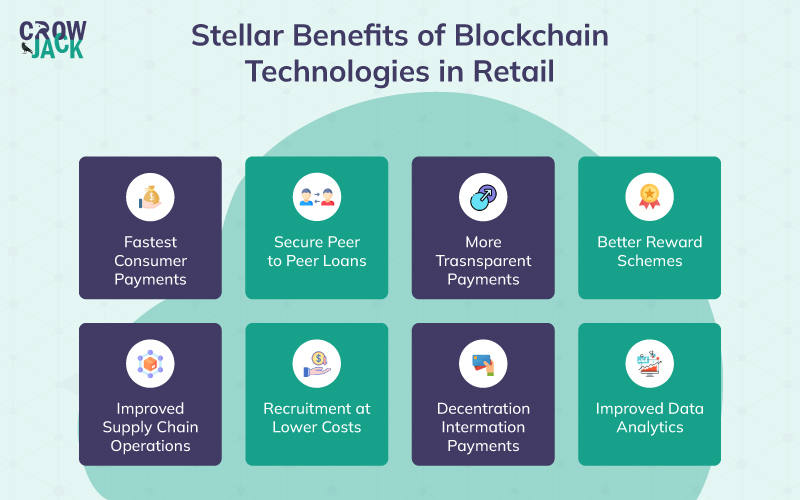McDonald's Overview
With more than 38000 stores spread in more than 100 countries, McDonald’s is a QSR brand that has enjoyed enormous success since its inception and has grown to be one of the most profitable franchises in the world. With its cost leadership and a wide range of offerings in foods and beverages, McDonald’s has won the hearts of people of all age groups. Besides, McDonald’s customers are highly loyal and this has been one standout feature of the brand’s success story.
This article aims at presenting a rationally conducted PESTLE analysis of McDonald’s with respect to the external environment in the QSR industry in the US and China. The PESTLE analysis strategic model is a highly effective analysis tool that enables business organizations to understand the impact of key external factors and integrate the necessary changes to sustain themselves. This PESTLE analysis of McDonald’s delves deep into the factors that are reshaping the QSR industry. So, let’s get started.
Table of Contents
A strategic and systematic PESTLE analysis of McDonald's

Political factors affecting McDonald's
The federal government of the US recently passed the Restaurant Rescue Plan with a corpus of $28.6 billion wherein the QSR restaurants would be provided a maximum of $10 million for their loss due to the pandemic (PYMNTS, 2021). This would provide opportunities for the businesses to recover losses and maintain financial stability. Further, the taxation policies in the country are favorable for the businesses as is visible from the fact that recently there was a drastic reduction in the corporate tax from 35% to 21% to boost the investments.
Further, a great amount of coffee is imported from Columbia by the QSR companies and the ongoing unrest in the country can lead to a reduction in supplies (BBC, 2021). Further, it is also noteworthy, that the sanctions imposed by the US on Russia as a result of the ongoing Russia-Ukraine war have resulted in the closures of many restaurants of various QSR companies in Russia.
Another major market for QSR restaurants, China does not have friendly relations with the US currency because of various international issues like China’s claim on the South China sea and the US government is discouraging the companies to invest in China. This can act as a barrier to the expansion of the business. Also, QSR companies need to be cautious while conducting operations and marketing as China is planning on bringing a law against food waste and the companies would be fined for promoting overeating (Davidson, 2020).
Economic factors affecting McDonald's
The US has been able to register a phenomenal growth of 5.7% in 2021 (Wiseman, 2022). However, the steady growth would be for a shorter period as it is expected to witness a downfall of 4% in 2022 and 2.6% in 2023 respectively (Shalal and Lawder, 2022). In addition, the bad news for the economy is that the rate of unemployment is stable, it was 3.9% in December and is expected to fall in 2022 to 3.8% and 3.5% in 2023 and the low unemployment rate can be positive news for the QSR companies as this would lead to an increase in sales as more people would have fixed sources of income. (Knoema, 2021).
Further, the inflation in the US is at a 40-year high of 7.5%. The reason for higher inflation is the reduction in the supply of goods and services due to COVID and the current level of supply is not able to match the demand in the market. The higher inflation rate would lead to an increase in the prices of products, hence reducing the affordability for many customers.
Furthermore, China's growth rate at the end of 2021 was 8.1% (Patranobis, 2022). The economy is expected to slow to 5.1% in 2022 and 2023 (OECD, 2022). The unemployment rate in 2021 was 5.1% (Lee, 2022). It has risen to 5.3% in January 2022. The reduction in growth rate and no positive change in employment is a positive sign for the QSR companies as people would switch more towards affordable products. The commercial rental rates in the US have increased by 1.2% (Lupa, 2021). In China, rentals have decreased by 2.6%. The QSR companies can benefit in China as their expenses would decrease.
The Quick Service Restaurant in the US is valued at $260 billion and is predicted to grow by 7.1% and reach $295 billion by 2022. In the coming years, the QSR industry in the US is forecasted to grow at a CAGR of 4.10% to $660 billion between 2022 and 2026.
Social factors affecting McDonald's
The consumption of fast food in the US is on the rise, especially among the millennials and generation Z. Close to 45% of people in the millennials category and 37% of people from the generation Z category consume fast food on a daily basis (Fryar and Hughes, 2019). This trend poses a significant opportunity for QSR companies to enhance their business. However, on the contrary, a large section of the population is now following healthy diets with the idea of fitness.
In fact, after the COVID-19 pandemic, people are more health-conscious than ever before and this could be problematic for the fast-food industry. As per Statista, in 2020, the healthy foods and beverages market in the US earned a revenue of 63 billion USD. This massive rise in healthy foods and beverages market size clearly speaks for the swiftly changing consumer preferences. Subsequently, the QSR and fast food industry will have to adjust to these changes by implementing effective change management strategies.
Further, over 9.6 million people have started consuming a vegan diet over the last few years (Kirkwood, 2020). The rise in the veganism trend poses a significant opportunity for QSR companies to enhance their product offerings.
Also, more than 40% of the internet users in China order food online. The high preference for online delivery signifies the need for the companies to boost their online ordering and delivery system through innovative means such as guaranteed 10 min delivery and other options.
Technological factors affecting McDonald's
The governments of both the countries the US and China spend extensively on R&D. China spent $375 billion in 2020 while the US contributed a whopping amount of $606 billion in 2020 (Normale, 2020). Various technologies are revolutionizing the way the QSR industry operates. For example, robots for taking orders and preparing food. Further, drones are being used for the delivery of parcels. In addition, self-service kiosks wherein the customers can order and pay through screens enhances the customer experience.
Further, technologies like scan and learn wherein the customers can scan the menu from the phone and get to know about the food ingredients, and their nutritional value and can help customers in making informed and healthier food choices. Moreover, the smart staff management systems can assist the companies in understanding the customer trends, online and in-store orders, and the number of staff required to provide appropriate customer service.
Legal factors affecting McDonald's
The US has strict antitrust laws that restrict the companies from engaging in mergers with an intention to reduce competition in the market and the company found violating the laws can face up to $100 million in fines and executives can be imprisoned for a period of 10 years. Further, it is illegal under The Sherman Act to fix prices, divide markets, or rig bids (Federal Trade Commission, 2022).
Further, it is mandatory for the restaurants to publish the calorie and nutritional information for all the items on the menu (FDA, 2018). The other legal factor that can impact the QSR industry is an increase in minimum wages across 21 states (Squires, 2022). This decision by the government can lead to an increase in expenditure for the companies. The major laws that impact the companies doing business in China include Civil Procedure laws, labor laws, etc. It is mandatory for the companies to enter into an employment contract at least by the end of the first month of hiring the employee and if the organization fails to formulate a contract then it would be liable to pay double the agreed salary and the companies cannot indulge in mass layoffs. If the company has to lay off more than 10% of its workforce, then it needs to gain approval from the labor bureau (Acclime, n.d.). The positive aspect for the companies is that the laws regarding the litigation have been amended recently and now the civil litigations can be filed online along with the provision of online hearings for the case (China Government, 2022).
Environmental factors affecting McDonald's
The QSR industry in the US wastes around 5800 gallons of water per day and produces about 15% of the total greenhouse gas emissions. To resolve these issues, various environment-related policies have been formulated by the government that includes banning single-use plastic.
Further, the Chinese government has announced to reduce the plastic in takeout packaging by 30% by 2025 and the plastics straws and bags would be completely banned by the end of 2022. This can lead to an increase in the cost of operations for the QSR industry as they would have to opt for expensive options for packaging the food and providing cutlery.
To recapitulate, it can be said that the QSR industry is in a great position of earning profits because of the high preference of the people for fast food in the US and the companies can exploit the new opportunity with rising in the trend of veganism in the society. However, the QSR companies can be at a major disadvantage as they consume a high amount of plastic in packaging and cutlery, and with the change in climate, various governments are pushing for tighter environmental norms which the QSR companies might have to shift their ways of doing business and as result would have to incur additional expenditure on the supply chain. Moreover, if you wish to analyze the internal capabilities of the company, you can delve into an astute SWOT Analysis of Mcdonalds conducted by us with extensive research.
Recommended Readings
PESTLE Analysis of Dunkin Donuts
PESTLE Analysis of Chipotle Mexican Grill
References
BBC. (2021). Why Colombia's protests are unlikely to fizzle out. Retrieved 11 April 2022, from https://www.bbc.com/news/world-latin-america-56986821
FDA. (2020). Menu Labeling Requirements. Retrieved 11 April 2022, from https://www.fda.gov/food/food-labeling-nutrition/menu-labeling-requirements#:~:text=The%20menu%20labeling%20requirements%20apply,substantially%20the%20same%20menu%20items.
Federal Trade Commission. (2022). The Antitrust Laws. Retrieved 11 April 2022, from https://www.ftc.gov/tips-advice/competition-guidance/guide-antitrust-laws/antitrust-laws
Kirkwood, B. (2020). New Study Reveals 9.6 Million Americans Are Vegan Now, A 300% Increase!. Retrieved 11 April 2022, from https://vegannews.press/2020/03/06/vegan-america-study/
Liu, D., & Liu, L. (2021). Office and retail rents record largest annual decline in years as impact of Covid-19 hangs on market. Retrieved 11 April 2022, from https://www.joneslanglasalle.com.cn/en/newsroom/office-and-retail-rents-record-largest-annual-decline-in-years
Lupa, I. (2021). Office Asking Rates Hold Steady as Vacancies Plateau Across Markets. Retrieved 11 April 2022, from https://www.commercialedge.com/blog/national-office-report-2021-august/
MAHESHWARI, R., & TAYLOR, A. (2022). Technology in Restaurants (QSR) – Top Trends in 2022. Retrieved 11 April 2022, from https://www.qentelli.com/thought-leadership/insights/top-technology-in-restaurants
McSweeney, R. (2020). Everything You Need To Know About Restaurant Taxes. Retrieved 11 April 2022, from https://upserve.com/restaurant-insider/restaurant-taxes/#:~:text=Florida%20Restaurant%20Tax%3A%20The%20restaurant,Florida%20Department%20of%20Revenue's%20website
NORMILE, D. (2020). China again boosts R&D spending by more than 10%. Retrieved 11 April 2022, from https://www.science.org/content/article/china-again-boosts-rd-spending-more-10#:~:text=In%20terms%20of%20absolute%20expenditures,OECD's%20purchasing%20power%20parity%20comparison
OECD. (2022). Economic Survey of China 2022. Retrieved 11 April 2022, from https://www.oecd.org/economy/china-economic-snapshot/
Patranobis, S. (2022). China grew by 8.1% in 2021, it has a $18 trillion economy. Retrieved 11 April 2022, from https://www.hindustantimes.com/world-news/china-grew-by-8-1-in-2021-it-has-a-18-trillion-economy-101642394615483.html#:~:text=Chinese%20official%20media%20said%20the,a%20growth%20rate%20above%206%25.
Press Trust of India. (2022). Once a powerful symbol in Russia, McDonald's withdraws amid increasing global sanctions. Retrieved 11 April 2022, from https://www.newindianexpress.com/world/2022/mar/15/once-a-powerful-symbol-in-russia-mcdonalds-withdraws-amid-increasing-global-sanctions-2430273.html

 Proof Reading
Proof Reading  Copy Writing
Copy Writing  Resume Writing
Resume Writing  Blogs
Blogs Guides
Guides SOP's
SOP's Student Resources
Student Resources Research Topics
Research Topics Login
Login Register
Register



